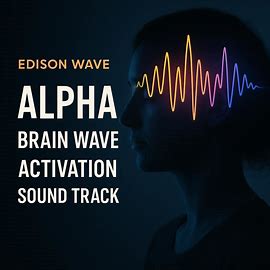The Need to Be Seen: Understanding the Universal Desire for Recognition

Strong 8k brings an ultra-HD IPTV experience to your living room and your pocket.
You've nailed a presentation and think it's your best work yet. While everyone offers high-fives and pats each other on the back, you stand in the shadows waiting for your turn. It doesn't come.
Yes, it was a team effort, but you did the bulk of the work. Surely, now is your time to shine?
We’ve all felt that subtle (or not-so-subtle) craving to be noticed, to have someone say, “I see you.”
Whether at work, at home, or posting on social media, that desire to be recognized and acknowledged is intrinsically human. It’s so universal that it can ripple into every facet of our lives.
Let’s explore why recognition matters so much, how it affects our mental well-being, and what happens when the need to be seen goes unmet.
Not Just About Ego
Wanting to be recognized doesn’t make you self-centered; it makes you human.
Psychologists have long pointed out that being seen and acknowledged is fundamental to social survival.
The British Psychological Society (BPS) describes it as “Being ignored or excluded by others triggers the same parts of the brain that register physical pain”.
This isn’t just a metaphor. Our brains hurt when we feel invisible.
Psychology Today says being validated and appreciated boosts our self-esteem, helps us feel connected, and contributes to better mental health.
That’s why workplace recognition, healthy relationships, and affirming social environments are so powerful.
Social Media and the Search for Validation
Many people chase likes, follows, and shares like tiny gold stars. And there’s a reason for that.
Social media platforms feed into the desire for affirmation and have become a digital mirror, reflecting our self-worth. However, this can be ambiguous. When external validation is not forthcoming, narcissistic collapse can occur.
An individual diagnosed with narcissistic personality disorder (NPD) has a sense of a false self and could act out by harming themselves or others in extreme cases.
Human potential coach Kamini Wood explains that people often turn to external validation when their inner sense of self-worth is lacking.
Emotional burnout is a real threat. People depend on likes and comments to feel good about themselves, only to crash when that recognition doesn’t come.
What Gen Z Is Teaching Us
Interestingly, the workplace has become a spotlight for conversations around recognition among Gen Z employees.
A Newsweek survey uncovered some enlightening results. About 60% of Gen Z workers reported needing recognition to feel motivated, and “nearly 40% said they would quit a job if they felt underappreciated”.
This generation isn't afraid to ask for what they need, and what they need is acknowledgment.
They may be onto something. Recognition at work doesn’t just boost morale; it leads to higher productivity, better teamwork, and lower staff turnover.
Flipping the Script
What happens when recognition becomes an obsession? That’s where ego can come into play, but not in the way most people think.
We often toss around the word “arrogance” as if it’s a personality flaw. Nonetheless, experts are starting to challenge that narrative.
Happiful says it’s time for “a more compassionate, nuanced understanding of narcissism; one that sees past the stereotype.”
Why? Because egotistical traits often stem from a deeper unmet need: the desire to feel worthy and acknowledged.
A new study published by PsyPost identified four distinct self-absorbed personality types, ranging from grandiose and outgoing to vulnerable and insecure.
The latter may not come across as arrogant at all. Instead, they may withdraw, shut down, or become hypersensitive when they feel unseen.
Being Seen Can Be Healing
If the absence of recognition can harm us, what’s the flip side? Being seen can be healing.
When someone says, “I appreciate you,” or gives you a meaningful nod during a tough moment, it tells your brain: You matter. You belong. You're real.
There’s power in small acts of recognition. You’re not just being polite. You’re meeting a core emotional need.
Being seen is more than wanting. Recognition reminds us that we’re not alone and that what we do (and who we are) matters.
We all have the potential to make others feel visible. It can be as simple as a quick “thank you,” a thoughtful comment, or paying attention.
And in doing that, we create a ripple effect of connection, compassion, and healing.
Go ahead and see someone today. While you’re at it, see yourself, too.
On the other hand, having fragile self-esteem is worth inner reflection. An extreme emotional response to something small that you feel warrants the silent treatment or vindictive behaviors is cause for concern.
Angry outbursts and passive-aggressiveness are red flags and a clear indication to seek professional help from a licensed therapist.
They could be signs of underlying issues.
Note: IndiBlogHub features both user-submitted and editorial content. We do not verify third-party contributions. Read our Disclaimer and Privacy Policyfor details.







